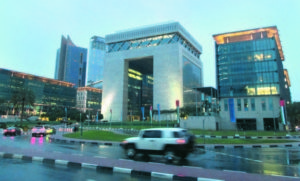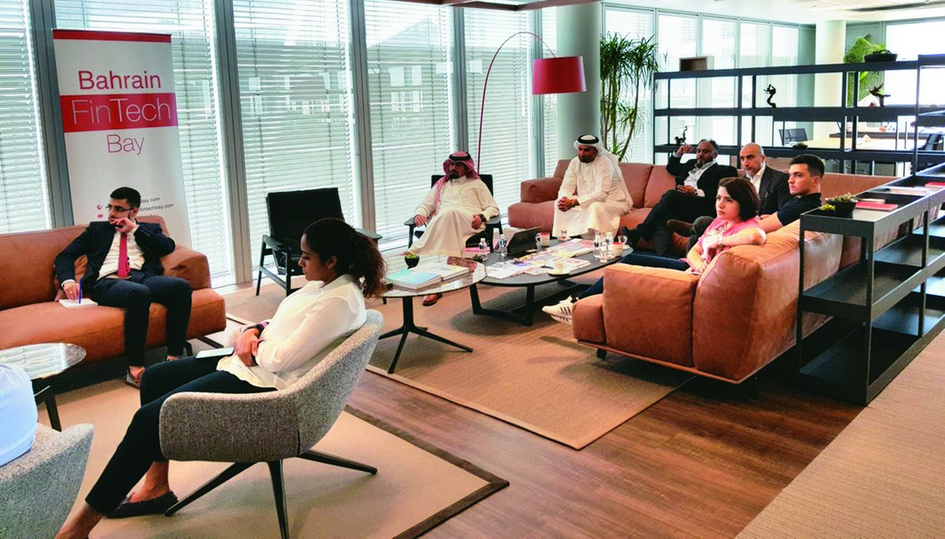Many countries in the Middle East have come to realize that oil is no more a dependable commodity for their economies to prosper and they have in right earnest begun identifying other sectors that could be exploited in order to be surviving in a precarious situation. For example, Saudi Arabia and the United Arab Emirates (UAE) are leveraging their strengths in technology and innovation. In Saudi Arabia there is Vision 2030, which is expected to take the country out of its dependence on oil. UAE on the other hand has initiated Smart Dubai, which comprises 100 initiatives to transform 1000 government services to smart service.
And fintech is named one of the key priorities in these countries. While this sector may not be as prominent or vast in the Middle East compared to the activities in this sector in the US, Europe or for example, in Singapore, there has been tremendous growth, especially in Abu Dhabi and Dubai and in Egypt, Jordan and Lebanon. Several startups, notably from the UAE and Saudi Arabia, are gaining traction from the global fintech community as well as foreign investors.
UAE HOTSPOT

Dubai International Center
A recent Forbes report says the UAE is the hotspot for the fintechs, followed by Jordan. The Financial Services Regulatory Authority of the Abu Dhabi Global Market had commissioned the first regulatory lab called ‘RegLab’, which eases the process for fintech companies to start up and launch in the region. There are two other sandboxes, by the Dubai International Financial Centre (DIFC) and Central Bank of Bahrain. And fintech startups in the region have been able to raise over $100 million in the last 5 years, and the target is to reach $250 million by 2020. What has been driving the fintechs into action is the scope for financial inclusion in the whole region, which has a huge immigrant population, which in turn calls for different types of financial services. These range from payments, forex, access to finance to comparison services.
The region is also a point of attraction for global companies, wanting to enter the lucrative market there. Some 35 plus banks are operational in the region and these banks are making substantial investments in digitization.
SHINING SANDBOXES
The sandboxes in the UAE and Bahrain enjoy a convenient licensing system for a limited testing period. These sandboxes also allow governments to learn about new technologies and to shape regulations accordingly. There are currently 3 sandboxes across the Middle East – the Dubai International Financial Centre (DIFC), the Abu Dhabi Global Market (ADGM) and Bahrain. Besides, Cairo had seen the launch of 2 accelerator schools to nurture startups. Qatar too has its own regulatory sandbox program.
Dubai, which is considered one of the world’s largest financial center, has seen a number of fintech startups coming up. Its location, interest shown by private investors, its banking system and the culture of innovation it has been able to promote, all act as catalysts for the fintech startups to take origin and prosper there. Late in 2017, DIFC had launched a $100 million fintech-focused fund and signed an agreement with the Monetary Authority of Singapore to undertake joint fintech projects. Hong Kong’s Securities and Futures Commission had entered into a cooperation agreement with the Dubai Financial Services Authority (DFSA) to establish a framework for the two regulators to help each other develop the fintech industry.
RESPONSE FROM BANKS
How do banks and financial services institutions respond to the growing clout of fintechs? Some banks really understand the potential of these entities, but they are also wary of the risk to their fundamental business model. Interestingly, Islamic banks are enthusiastic about the prospects and are investing in digital initiatives. A recent Ernst & Young report said while fintech’s penetration into Islamic finance is still in its nascent stage, but it could help Islamic banks become more efficient and scale up their operations.
IN PURSUIT OF INNOVATION
There is a unique effort in Bahrain. The country’s FinTech Bay is a public-private partnership between the Bahrain Economic Development Board (EDB) and FinTech Consortium. It is described as part high-tech workspace and part incubator. It is mandated to support the acceleration of businesses in the sector and facilitate collaboration between investors, entrepreneurs, government agencies and banks. It has already secured the support of major international sponsors like Cisco and Microsoft. FinTech Bay also ties into a regulatory sandbox created by the Central Bank of Bahrain (CBB) to provide a safe space in which companies can experiment with banking ideas.
ADGM too has established a regulatory lab to make it easier for startups to do business and design a framework to enable VC firms to invest. RegLab allows fintech startups a 2-year window to develop and test their propositions before taking them to market. ADGM is collaborating with a number of global accelerators to nurture entrepreneurs, including PayPal and Dropbox incubator Plug and Play Tech Center.
The Dubai Financial Services Authority, an independent regulator, has introduced the Innovation Testing License (ITL) to allow DIFC-based innovators to test their products with end users within a tested regulatory framework, without being subject to the regulatory requirements that normally apply to regulated firms.
TOP FINTEHCS
Some of the top fintech startups in the Middle East that have made a mark are:
Democrance (UAE), an insurtech startup and the first mover for microinsurance in the region. It partners with insurance companies and mobile operators to offer insurance products to the underserved microinsurance market in the Middle East and North Africa. The startup has a partnership with ADA, an inclusive finance specialist NGO and the International Fund for Agricultural Development (IFAD) to develop a sustainable microinsurance model that provides insurance protection to low income group migrants working in the UAE.

MadfooatCom (Jordan), a Jordanian bill payment and payment service company that got its start at Oasis500, a prominent accelerator and venture capital firm in the country. It has created a platform for customers to inquire and pay their bills in a single location via their banks’ online channels. The solution can be tied into other payment solutions as well. It is a partner of the Central Bank of Jordan for which it created and has been administering the country’s national electronic bill presentment and payment service gateway, eFawateerCom.
Liwwa (Jordan), an online lending platform that connects small businesses in need of capital with investors. Since 2015, it has enabled businesses to raise more than $8 million through 220 loans. It has raised over $4.8 million in funding so far with investors that include DASH Ventures, al Etihad, MENA Venture Investments and Silicon Badia.
Finerd (UAE), a provider of automated investment management solutions for retail clients in the Middle East. It is targeted at mid-career professionals with around $100-$200K in liquid assets. It was part of an accelerator program and through which it received $600,000 in funding. The company is proposing to bring its Sharia-compliant products to market.
Ajar Online (Kuwait), a Kuwait-based fintech that allows tenants to pay their rent conveniently online, via SMS or email, and landlords to view live updates of their tenants’ payments, statuses, histories and collection reports. It has a partnership with Warba Bank, which is running Ajar Online’s back office financial operations and promoting its services to their corporate clients.
Paym.es (Turkey), a shopping chatbot built by fintech startup Paymes Elektronik Ticaret that helps users sell or purchase items by asking them a series of questions like chatting with a friend on messenger apps. The solution aims to facilitate e-commerce through a user-friendly application that is used in everyday life rather than a new application or website. The messenger bot operates as a simple conversation based on a series of multiple-choice questions and can accept payments natively without sending users to an external website.
Iyzico (Turkey), a provider of mobile and web payments services. The startup is often called the ‘Stripe of Turkey’. It targets online businesses and enterprises, particularly e-commerce sites, offering a developer-friendly platform for taking payments online. It is powering over 10,000 merchants and counts 200,000 seller accounts.
POSRocket (Jordan), a provider of cloud-based POS solutions to SMEs that allows businesses to monitor all operations in real time including cash flow, inventories, and analytics from wherever they are and through any device. It operates in Jordan and Egypt. It is now planning to support the Saudi and GCC markets.
Foodics (Saudi Arabia), a cloud-based iPad POS system for transactions, inventory, employee scheduling, loyalty programs and e-commerce, enabling seamless operations management of restaurants and retail stores. The service is available in Saudi Arabia and the UAE and the company is now intending to expand to other countries in the Middle East.
Durise (UAE), a real estate crowdfunding platform for the Middle East region. It offers equity stakes in crowdfunded commercial and residential buildings starting with $5000. Durise then manages the property on behalf of the crowd, allowing people to invest smaller stakes in multiple projects in the UAE.
yallacompare (UAE), a financial comparison platform that helps users find and compare credit cards, personal loans, mortgages, car loans, insurance and bank accounts from a wide range of local and international banks and financial institutions. It is live in nine countries – the UAE, Qatar, Bahrain, Kuwait, Saudi Arabia, Egypt, Lebanon, Jordan and Oman.
NOW Money (UAE), the first mobile banking app in the GCC countries to use mobile banking technology to provide accounts, financial inclusion and a range of low-cost remittance options to low-income workers. The startup aims to provide access to affordable financial services for everyone.







